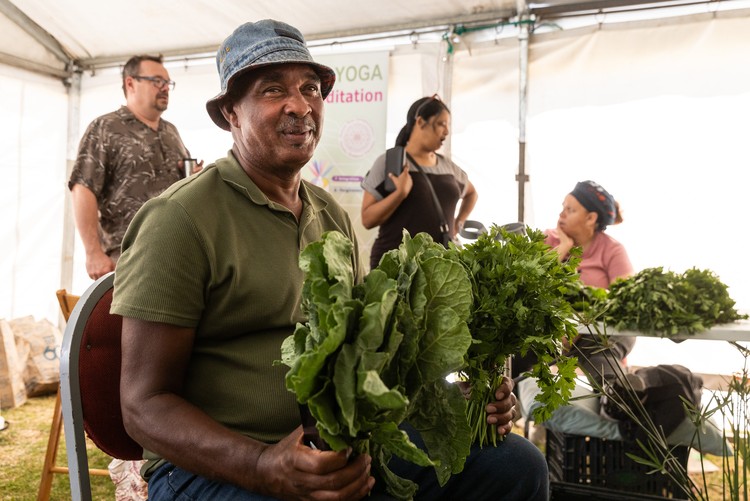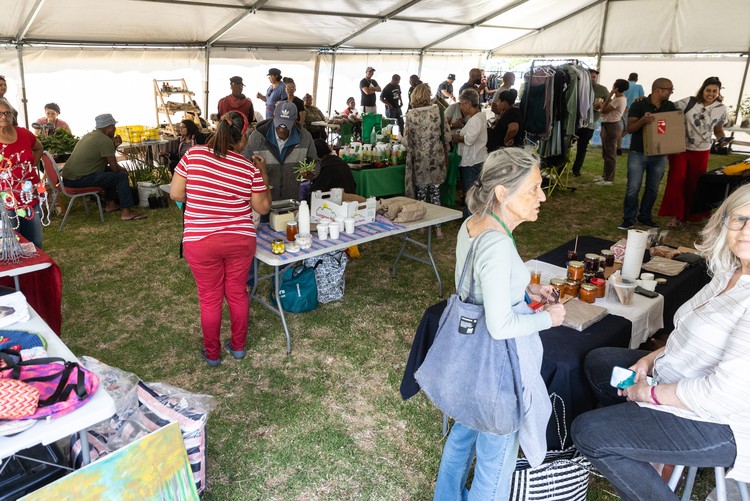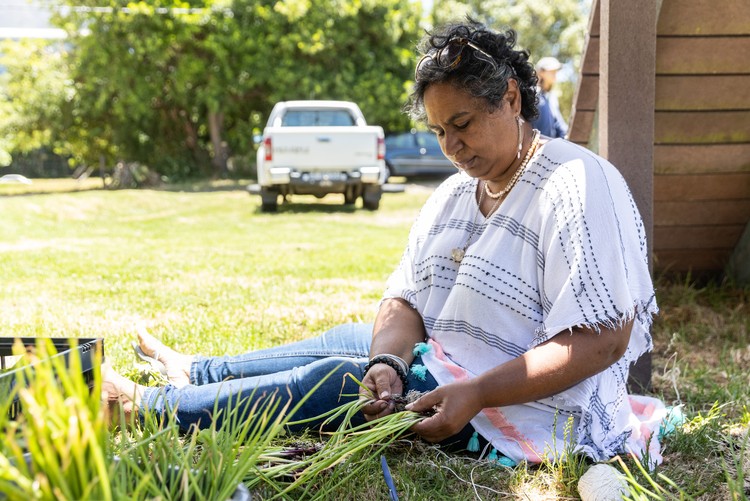Small farmer makes a comeback after devastating floods
Genadendal farmer Johannes Arendse sells his produce in Cape Town
Johannes Arendse said things were looking up at his Genadendal farm after devastating rains in September completely flooded the farm. Photos: Ashraf Hendricks
- Genadendal farmer Johannes Arendse was one of the small farmers who lost most of their livestock and crops in the September floods.
- But his farm has bounced back and at the weekend he was at the Mowbray Market in Cape Town, selling produce again.
- The market brings together small-scale farmers and fishers, and other independent vendors from rural areas across the Western Cape.
Genadendal farmer Johannes Arendse lost most of his livestock and crops during the devastating floods in the Western Cape three months ago. But last weekend he joined dozens of vendors selling organic produce at the Mowbray Market in Cape Town.
The market, launched in December 2022, brings together small farmers and fishers, and other vendors from rural areas across the Western Cape.
It is a collaboration between the Trust for Community Outreach and Education (TCOE), the Rural Women’s Assembly, and the Mawubuye Land Rights Forum.
Arendse was selling organic spinach, kale, herbs and indigenous plants. He was also selling bags of red pepper plants and tomato plants which he says are easy to grow.
During the September floods which have been officially declared a national disaster, the farm owned by Arendse and six others suffered devastating losses. Water rose to a metre deep and covered everything, he said. GroundUp reported that hundreds of his chickens and several pigs drowned in the heavy rain and much of his crop washed away or was badly waterlogged.
On Saturday, Arendse said that things on the farm were much better. His crops are growing again, and he is building a new elevated chicken coop to prepare for any future flooding.
The market started a year ago and is a collaborative project between the Trust of Community Outreach and Education, the Rural Women’s Assembly, and Mawubuye Land Rights Forum.
Sophia Grodes and Shaheeda January-Manzini were selling vegetables and seedlings.
Grodes runs a vegetable garden and teaches learners about farming at a school in Ocean View. She said growing food is “so rewarding” for the children.
“Every household should have a garden to feed themselves,” said Grodes. If you grow your own vegetables, she says, “you don’t have to wonder where your food comes from”.
She and January-Manzini are Participatory Guarantee Systems farmers, which means they grow organic produce free of pesticides and chemicals. January-Manzini said they try to source organic seeds and when they can’t find any, they wash off the chemicals.
Keshia Leonard was selling fresh fish caught by the cooperative in the fishing town of Buffeljagsbaai, as well as homemade preserves and dried sour figs which grow on the sand dunes where they live.
She said small fishers in Buffeljagsbaai are struggling at the moment. They often wait a long time to obtain permits, their quotas are limited, and they don’t always have profitable catches, she said. Learning gardening from farm women through the Rural Women’s Assembly, she says, has helped her survive.
TCOE’s Robert Andrews said that there is “little room” for smallholder farmers, particularly black and women farmers. “The food system is dominated by a handful of big commercial players,” he said.
Shaheeda January-Manzini, from Kommetjie, grows organic produce and tries to cut costs by making her own fertiliser.
Next: South Africa cracks down on Zimbabwean children entering the country to visit their parents
Previous: Victory for union at chicken plant
© 2023 GroundUp. This article is licensed under a Creative Commons Attribution-NoDerivatives 4.0 International License.
You may republish this article, so long as you credit the authors and GroundUp, and do not change the text. Please include a link back to the original article.
We put an invisible pixel in the article so that we can count traffic to republishers. All analytics tools are solely on our servers. We do not give our logs to any third party. Logs are deleted after two weeks. We do not use any IP address identifying information except to count regional traffic. We are solely interested in counting hits, not tracking users. If you republish, please do not delete the invisible pixel.





